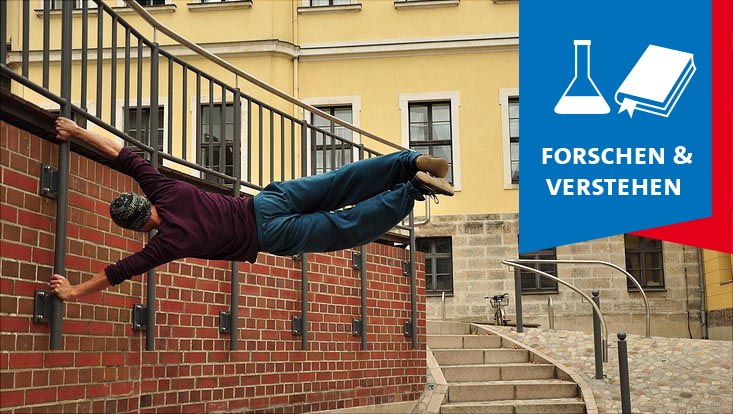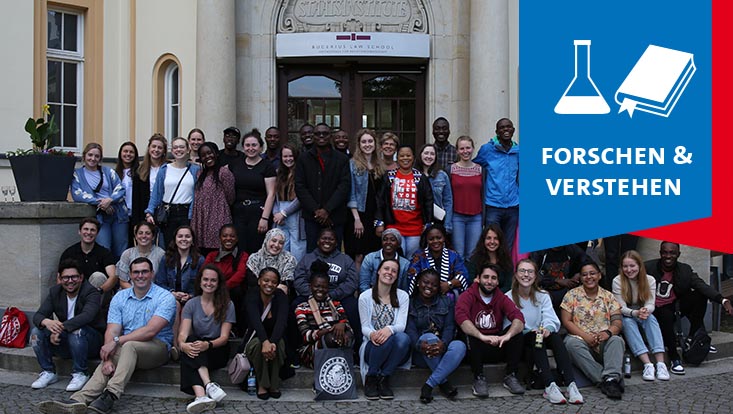QualiTePEParkour or Bars—Do These Ensure Good Gym Classes?Doing the Research series
11 August 2022, by Anna Priebe

Photo: pixabay/schwalbenschwanz
For some, it’s the best part of the school day, for others, torture. Ah, gym class! Yet what makes for good school sports? This is the question at the heart of the QualiTePE project with Prof. Dr. Erin Gerlach and Dr. Wiebke Langer at the Institute of Human Movement Science. Our series Doing the Research introduces research projects at Universität Hamburg.
The medicine ball continues to stand for gym class. Is there scientific consensus on what makes for good school sports?
Erin Gerlach: In almost all of the curricula throughout Germany, there is consensus about the programmatic goal of gym class, the so-called “double mission.” On the one hand, teaching sports—children should get to learn about sports and movement and how to do them. On the other hand, there is a mission to teach through sports, that is to promote development through movement, games, and sports. This also involves critically reflecting upon sports. Religion lessons are not, of course, about memorizing quotes from the Bible but about addressing the larger themes. It’s about learning to behave in and through sports. Good sports lessons foster that.
Wiebke Langer: For this, sports lessons need to cover various pedagogical perspectives that go beyond pure achievement, for example, social aspects such as teamwork, body perception or encouragement to take risks, special kinds of experiences with movement or expressing yourself physically. On the whole, good sports lessons are not about playing sports but about how sports are staged and embedded. For example, classic types of sports can be completely reinterpreted.
How can these theories be put into practice?
Gerlach: The curricula do not mention specific types of sports but so-called “areas of movement.” For example, one is called “movement on and with equipment.” Naturally, this involves classic gymnastics equipment, but these things change—just like sports culture outside of school. So these areas can be developed and involve students. Take parkour, for example, which originated in France. It is basically mastering the urban environment. You have to overcome creative hurdles. This is also a type of movement using equipment that is often much more appealing to students than classic gymnastics.
Langer: And we have the advantage of closely linking research and teaching. We work with our students using teaching formats in which they can develop ideas for practical phases at schools and then directly implement them. We notice that for upcoming teachers another understanding of gym class has already become established.
How do you research the topic of “good sports lessons” in your QualiTePE project?

Gerlach: Empirical classroom research distinguishes 3 features of good classroom instruction: class management and lesson planning; a pupil-oriented learning environment; and the potential for cognitive activation. Then there are things such as the selection of specific material and methods and formative assessments, meaning the ongoing review of learning processes and appropriate feedback.
As a first step, we spoke with our colleagues at other European universities about what these dimensions mean for sports lessons in their own countries. For example, in sports lessons class management involves managing material and space, that is, handling “organized chaos”—after all, everyone is constantly moving. When it comes to the learning environment, it’s about building trustworthy working relationships. Activation means being physically active and linking this activity to thinking, that is, acquiring strategies and knowledge about physical processes when moving or playing sports—within the context of school sports, this means movement-related and cognition-related activation.
It’s about everyone who works for good sports lessons at every level.
Langer: On the basis of the developed and structured dimensions and features of lesson-plan quality, we will conduct a so-called “Delphi Survey” of the international players within and outside the universities, i.e., academics with research expertise in the professionalization of gym teachers and/or lesson-plan quality for gym classes; university teachers; and people involved in the practical training of gym teachers, for example, seminar instructors. Then there are the people charged with country-specific quality development for gym classes, for example, school inspectors. It’s about everyone who works for good sports lessons at every level. In this multi-staged survey, we want to found out how they evaluate the individual criteria. Ultimately, we should have a tool for talking about and assessing the quality of gym classes.
Gerlach: We want to incorporate 3 perspectives into the tool: the teachers’, an observer’s, and the school students’— because the perception, for example of the learning environment, can vary dramatically. And this would then be a starting point for seeing why, for example, a teacher perceives it completely differently from his students. The tool can then be used for training purposes as well as by practitioners, as a starting point for reflecting upon one’s own actions for the purpose of professional development.
And that works throughout Europe?
Gerlach: Of course, we are seeking compromise where country-specific conditions and concepts cannot be taken into account. But on the whole, we can already see that an understanding of quality related to sports lessons can be depicted and investigated beyond borders.
Langer: This intercultural exchange is also very enriching. You learn a lot about the understanding of movement and sports, in themselves and as a school subject, as well as about how lessons are designed in other countries. It’s eye-opening. I studied in Germany and gained my experiences at school here. It’s just interesting to now get to know and discuss other perspectives.
Project
Quality of Teaching in Physical Education (QualiTePE) is an international research projects funded through the Erasmus+ program. It began in 2022 and will run until 2024. Researchers from 11 institutions in 10 European countries want to find out what makes for good sports lessons and how principles can be implemented and evaluated. The Hamburg sub-project is headed by Prof. Dr. Erin Gerlach and Dr. Wiebke Langer in the research group Physical Education and Sports Pedagogy.
Doing the Research
There are approximately 6,200 academics conducting research at 8 faculties at Universität Hamburg. Many students also often apply their newly acquired knowledge to research practice while still completing their studies. The Doing the Research series outlines the broad and diverse range of the research landscape and provides a more detailed introduction of individual projects. Feel free to send any questions and suggestions to the Newsroom editorial office.


